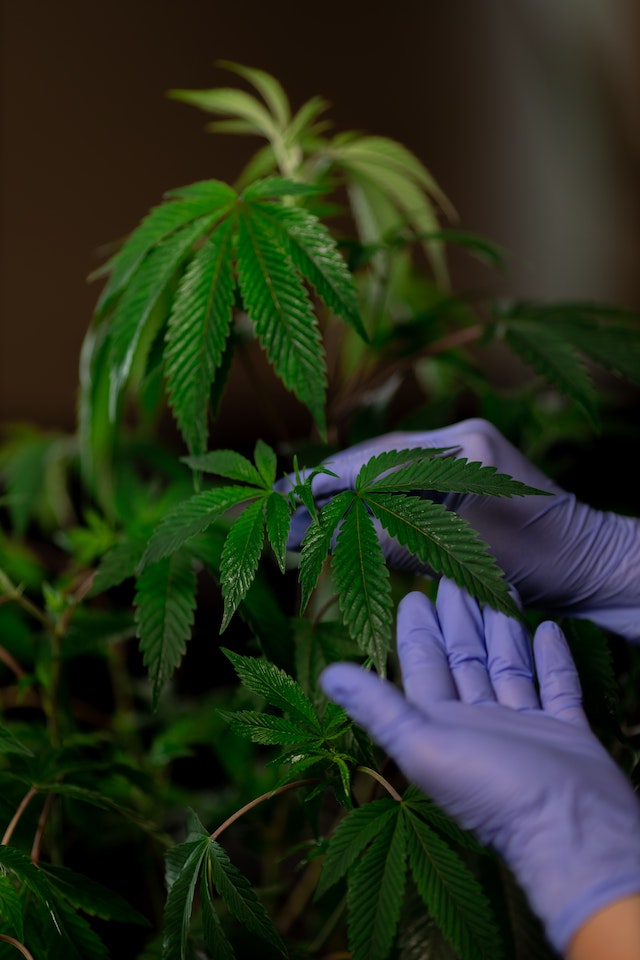Missouri’s recreational market just launched in February and it’s booming. Statewide cannabis sales in February alone surpassed $100 million.
This is over twice what was brought in after the initial month of sales in Illinois, a state with double the population of Missouri. Knowing this, it seems as though the “Show Me State” is showing the nation how recreational cannabis should be implemented for a successful launch.
So why is Missouri’s recreational cannabis market doing so well? How are they outselling the Illinois market?
First, the Missouri legislature did a great job of rolling out the regulations. Taxation is low, 6% at state level and a max of 3% more at a local level.
Second, the state got nearly all of its medical operations (97%) to join the adult-use market. The third potential reason boils down to geography.
Missouri is mostly surrounded by states where cannabis is not legally available yet, aside from Illinois, where the taxes are high, regulations are complex and there’s a very onerous licensing process.
Setting a New Precedent for Safety & Quality
On every major metric, MO successfully rolled out a brand new recreational cannabis market. Missouri also gets a thumbs up in my book from a product safety, regulatory perspective. MO regulators did what we wish more regulators would do; they listened to experts in the industry.
Cannabis, or consumables in general, do not live in a vacuum. Consumables are consumables, and demand is demand, no matter the market. Missouri learned from the earlier adopters and enacted what was successful.
After participating in many “public comment” sessions in other states it is obvious that MO actually listened to industry leaders, as they should’ve, during this time.
Not only did Missouri learn from early adopters, the state created new paths for success for other states to consider. Missouri set a new precedent by listening to cannabis safety experts when other legal states didn’t.

Many states ask for Good Manufacturing Practices (GMP) in the facility and Good Agricultural Practices (GAP) in the field or indoor cultivations.
Few states then follow-up with the expectation of a safety audit proving that all the license holders are actually following the safety precautions.
Missouri is one of the few that asks for a cannabis safety audit in each facility within a year. CSQ is one of the accepted cannabis safety standards. New York and Florida are the only other states that require an actual cannabis compliance audit.
In reality, the cannabis safety expectations required of license holders in Missouri are not that different from most other states.
However, the one subtle difference is monumental for overall consumer safety.
Almost every state requires all licensees to have Standard Operating Procedures (SOPs), for Good Agricultural Practices (GAP) and Good Manufacturing Practices (GMP).
Through the licensing procedure, companies will buy or create SOP templates which define the different risks within the operation and spell out step-by-step instructions on how to minimize those risks.
Sounds important, right? Well, most of these beautifully written SOPs will end up collecting dust in a binder on the shelf of the operation manager’s office, never to be used again.
So what did New York, Florida, and Missouri do differently to significantly reduce consumer risk?
These states require a verification audit within the year of operations and annually moving forward to prove that the cannabis growing, packing, and processing operations are actually doing what their SOPs say they should be doing, keeping compliance protocols consistent across the board.
Importance of Enforcing Consistent Compliance
When there’s a lack of consistent compliance in any consumable industry, we start to see consumer trust plummet. Sure, this may vary depending on the type of consumer, as some decipher purchases based on quality while others may prioritize price and choose to buy in bulk.
Regardless of preference, all consumers expect to not get sick and/or die from consuming a product they purchase in the dispensary. It doesn’t matter the size of the operation; small or large producers can ruin trust instantly with adulterated products.
Not only this, but adulterated products could cause an outbreak, in which case the FDA will want to regulate cannabis as a drug, handing all licenses to a select few larger organizations.

That said, Missouri is aligning with two other strong markets also requiring verification that proper cannabis safety standards are being practiced daily in every facility in their state.
This is a smart move, since implementing safety practices and regular audits ultimately leads to a better overall operation. The safety practices include supplier management, testing, sanitation, etc.
When all these practices are logged, upper management has better insight to what is happening in the field and line workers are more conscious of risk and risk management.
For the big multistate operators, cannabis safety audits like CSQ are a way of implementing and maintaining identical standards across all the facilities in every state.
But this does not mean that compliance audits are only meant for large operators. The reality is that smaller operators with maybe one or two licenses in Missouri can easily get certified for safety and quality without breaking the bank.
Overall, Missouri’s rollout of cannabis legislation was nothing short of impressive. I’d encourage neighboring states to follow in the footsteps of the ‘Show Me’ state.
Missouri’s legislators and regulators have created rules that protect consumers’ health, and since this adult-use market is still so fresh, this only marks the beginning of what this new state can show us.
The question is — are we smart enough to watch?
Author
-
Matt Regusci is the Technical Director for CSQ. Learn more at www.csqcertification.com.






